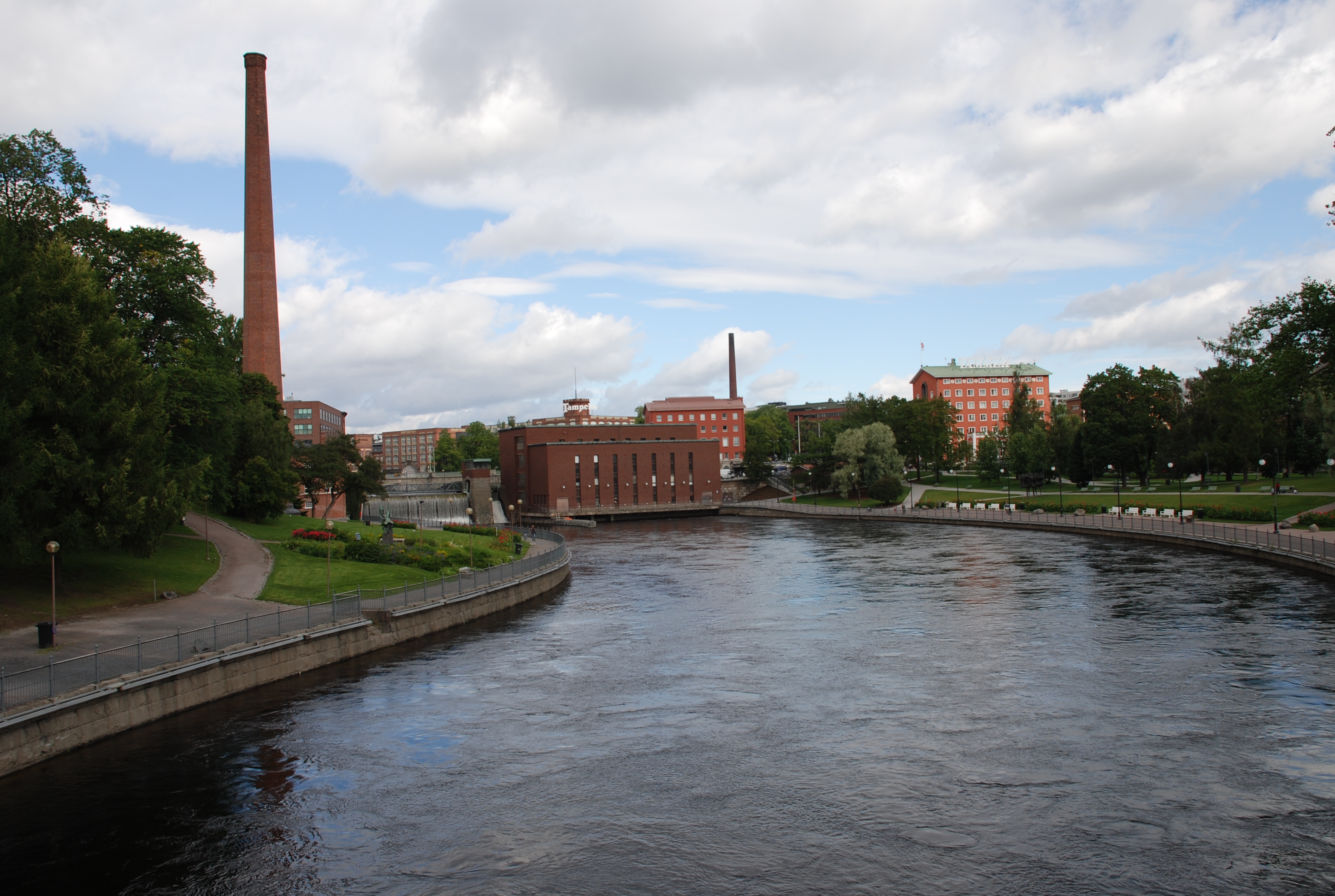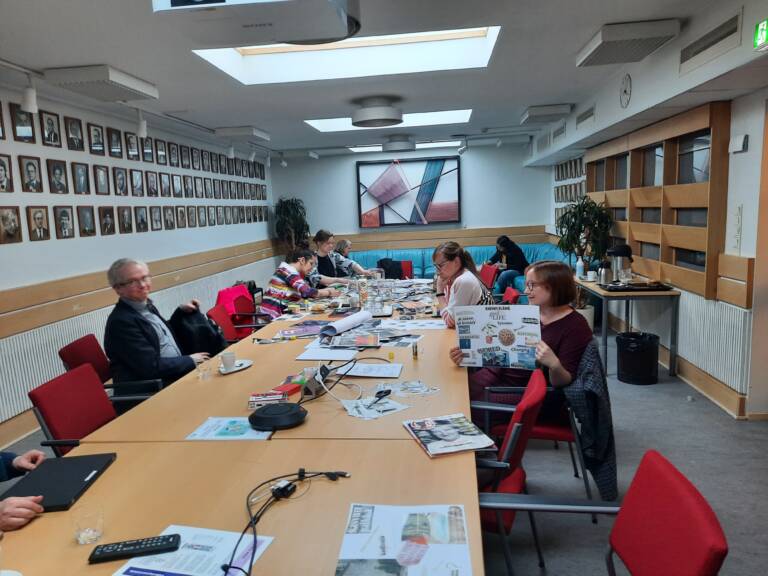(in English below)
Johtamisen ja talouden tiedekunnassa (MAB) alkoi vuosi sitten tiedekunnan postdoc-tutkijoille suunnattu mentorointiohjelma ja se päättyi toukokuussa 2023. Ohjelman tärkeimpänä tavoitteena oli postdoc-tutkijoiden ammatillisen kehittymisen tukeminen. Mentorointiohjelmassa postdoc-tutkijoiden mentoreina toimi tiedekunnan seniorivaiheen tutkijoita. Ohjelmassa oli yhteensä kahdeksan (8) aktori-mentoriparia.
Mentorointiohjelmassa aktorit (postdoc-tutkijat) ja mentorit päättivät itse, kuinka usein ja miten he keskinäiset tapaamisensa pitävät. Keskimäärin aktori-mentoriparit tapasivat noin kahdeksan (8) kertaa mentorointiprosessin aikana. Tapaamisia pidettiin niin kasvotusten kuin etänäkin. Lähitapaamisia toteutettiin eri tavoin: oli kävelytapaamisia, lounastapaamisia, mentorin tutkimusryhmään tutustumista jne. Tapaamisten aiheet olivat mentoriparien itsensä päätettävissä. Osa pareista hyödynsi käsiteltävien aihepiirien valinnassa Mentoroinnin työkirjaa (Kanniainen, Nylund & Kupias 2017). Yksi pareista hyödynsi arvokortteja keskustelun tukena ja jotkut parit hyödynsivät ennakkotehtävää/-lukemista ennen paritapaamista.
Kaikille yhteisiä tapaamiskertoja oli mentorointiprosessin aikana yhteensä neljä (4). Ensimmäisen yhteisen tapaamisen avasi MAB-tiedekunnan dekaani Matti Sommarberg ja sillä kerralla keskusteltiin mentorointiprosessiin liittyvistä tavoitteista ja toiveista. Postdoc-tutkijoilta pyydettiin ehdotuksia seuraavien yhteisten kertojen teemoista. Ehdotetuista teemoista tärkeimmiksi nousivat akateemisen uraan liittyvät keskustelut ja pohdinnat sekä työhyvinvointi.
Syksyn 2022 toisella yhteisellä tapaamiskerralla omasta akateemisesta urastaan ja sen vaiheista olivat kertomasta apulaisprofessori (tenure track) Marjo Siltaoja Jyväskylän yliopiston kauppakorkeakoulusta ja professori Heikki Liimatainen Tampereen yliopiston rakennetun ympäristön tiedekunnasta. Heidän uratarinansa herättivät paljon kysymyksiä ja keskustelua akateemisen uran vaiheista ja uralla etenemisestä. Tapaamisessa käsiteltiin myös Vitae-työkalua (Vitae Researcher Development Framework), jota voi hyödyntää omien tutkijakompetenssien tarkasteluun sekä sanoittamiseen.
Kolmas yhteinen tapaaminen keskittyi työhyvinvointiin ja se järjestettiin helmikuussa 2023. Tutkimusjohtaja ja työhyvinvoinnin tutkimusryhmän vetäjä Kirsi Heikkilä-Tammi (MAB-tiedekunta) avasi tutkimustulosten kautta akateemiseen työhön liittyviä keskeisiä työhyvinvoinnin näkökulmia sekä tarjosi konkreettisia välineitä oman työhyvinvoinnin tarkastelu ja vahvistamiseen. HR-asiantuntija Eveliina Nurmi kertoi omassa puheenvuorossaan yliopistotason henkilöstötoimista (HR) tutkijoiden työhyvinvoinnin tukemiseksi ja tiedekunnan HR-partneri Hanna Nurmi keskittyi tiedekunta tason HR-toimiin.
Mentorointiohjelman viimeinen yhteinen tapaaminen pidettiin toukokuun puolivälissä 2023. Viimeisellä kerralla postdoc-tutkijat ja mentorit reflektoivat omaa mentorointiprosessiaan. Viimeisen kerran teemana oli myös oman uran hahmottaminen unelmakartan avulla. Sen tekemistä oli fasilitoimassa asiantuntija Leena Köppä tutkimus- ja innovaatiopalveluiden preaward-tiimistä. Unelmakartan sai tehdä perinteisesti leikkaa-liimaa-tyylillä lehdistä kerättyjen kuvien tai tekstin avulla tai sähköisesti. Unelmakartta-tehtävä koettiin antoisaksi ja avartavaksi kokemukseksi.
Postdoc-tutkijoilta kerätyn palautteen perusteella koko mentorointiprosessin keskeisimpänä antina koettiin keskustelut oman mentorin kanssa. Postdoc-tutkijat olivat sitä mieltä, että mentorilta sai hyvin tukea omaa työtä ja tulevaisuutta koskeviin reflektointeihin. Mentoroinnin keskeistä antia olivat myös erilaisten näkökulmien esiintuominen ja hiljaisen tiedon jakaminen. Mentori toimi prosessin aikana luotettavana keskustelukumppanina, herättelijänä sekä totuttujen ajatusmallien ja toimintatapojen haastajana.
Keskeisin aihepiiri, josta postdoc-tutkijat olivat omien mentoreidensa kanssa keskustelleet, oli oma akateeminen ura ja sillä eteneminen. Tähän liittyvät keskustelut koskivan muun muassa tutkijana itsenäistymistä ja oman tutkimusryhmän rakentamisesta, omia suuria ja pieniä tavoitteita, niiden sanoittamisesta sekä tasapainon löytämisestä eri tavoitteiden välillä, akateemisen maailman vaatimuksia, dosentuurin hakemista, tenure track -urapolkua ja muunlaisia urapolkuja, oman tutkimusprofiilin rakentamista (esim. julkaiseminen, näkyvyys), verkottumista sekä kansainvälistymistä.
Toinen keskeinen aihepiiri mentorointiparien keskusteluissa koski oman ammatillisen osaamisen vahvistamista. Siihen liittyvissä keskusteluissa oli pohdittu esimerkiksi omien vahvuuksien ja kehittymistarpeiden tunnistamista. Keskustelujen koettiin vahvistaneen omaa ymmärrystä akateemisesta työstä, mutta myös tiedekunnan ja yliopiston toiminnasta laajemmin. Mentorin kanssa oli keskusteltu myös konkreettisista toimista osaamiseen vahvistamiseen liittyen, kuten oman tutkimussuunnitelman selkiyttämisestä rahoitushakuja varten.
Kolmas keskusteluissa tunnistettu aihepiiri liittyi työhyvinvointiin. Mentorointiparit olivat keskustelleet esimerkiksi omista arvoistaan, niiden tunnistamisesta ja niiden mukaan toimimisesta. Keskusteluissa oli myös käsitelty arjenhallintaa ja ajankäyttöä (esim. työn tuunaaminen, aikavarkaiden tunnistaminen), työn ja vapaa-ajan/perheen yhteensovittamista sekä tutkijan työhön liittyviä haasteita ja kuormittavuutta (esim. työn yksinäisyys, kilpailullisuus ja stressaavuus). Myös armollisuudesta itseään kohtaan oli puhuttu.
Yhteisten tapaamisten keskeisenä antina koettiin ryhmässä käydyt keskustelut ja reflektoinnit. Vaikka monet keskustelluista asioista olivat ennestään tuttuja, koettiin, että niihin sai uudenlaista näkökulmaa ja huomattiin, että muutkin painivat samanlaisten kysymysten ja teemojen ympärillä.
Lämmin kiitos kaikille MAB-tiedekunnan mentorointiohjelmaan osallistuneille sekä vieraileville puhujille!
Hanna & Johanna
…………………………………………………………………………………………………………………………………………
In the Faculty of Management and Business (MAB), a mentoring programme targeted for the faculty’s postdoctoral researchers began a year ago and ended in May 2023. The main goal of the programme was to support the faculty’s postdoctoral researchers’ professional development. In the mentoring programme, postdoctoral researchers were mentored by the faculty’s senior researchers. There were totally eight (8) actor-mentor pairs in the programme.
In the mentoring programme, the actors (postdoctoral researchers) and their mentors decided themselves how often and in what ways they would meet during the mentoring process. On average, the actor-mentor pairs met eight (8) times during the process. Meetings were held both face-to-face and remotely. Face-to-face meetings were carried out in different ways: there were, for example, walking meetings, lunch meetings, getting to know the mentor’s research group. The topics of the meetings were up to the mentor pairs themselves. Some of the pairs utilised the Workbook for Mentoring (Kanniainen, Nylund & Kupias 2017) for choosing the topics to be discussed. One of the actor-mentor pairs used value cards to support the conversation and some pairs had pre-assignment/-reading before the pair meetings.
Altogether, four (4) joint meetings for all participants were held during the mentoring process. MAB faculty’s Dean Matti Sommarberg opened the first joint meeting and, in that meeting, the goals and wishes related to the mentoring process were discussed together. In addition, postdoctoral researchers were asked to provide suggestions for the themes of the forthcoming joint meetings. The themes that were considered most relevant related to own academic career and career progress as well as well-being at work.
In the second joint meeting in autumn 2022, Associate Professor (tenure track) Marjo Siltaoja from the Jyväskylä University School of Business and Economics and Professor Heikki Liimatainen from the Faculty of Built Environment at Tampere University talked about their academic careers and career phases. Their career stories raised a lot of questions and discussion about academic career stages and career progression. The Vitae tool (Vitae Researcher Development Framework), which can be used to review and articulate own researcher competencies, was discussed in the meeting, too.
The third joint meeting focused on well-being at work and was organised in February 2023. Research Director Kirsi Heikkilä-Tammi from the faculty’s Well-being at Work Research Group, opened key aspects of well-being at work related to academic work through research results and offered concrete tools for examining and strengthening one’s own well-being at work. Furthermore, HR Specialist Eveliina Nurmi introduced the university-level HR practices available to support researchers’ well-being at work, and the faculty’s HR Partner Hanna Nurmi focused on faculty-level HR practices in her presentation.
The last joint meeting of the mentoring programme was held in mid-May 2023. In that meeting, the postdoctoral researchers and mentors reflected their own mentoring process. In addition, everybody was asked to reflect their future career plans by crafting a dream board. This exercise was facilitated by Specialist Leena Köppä from the research and innovation services’ Preaward team. The dream broads were made either by the traditional cut-and-paste style using pictures and text collected from magazines or by using electronic devises. The dream board task was perceived as a rewarding and broadening experience.
Based on the feedback collected from the postdoctoral researchers, the discussions with one’s own mentor were seen as the most valued aspect of the entire mentoring process. The postdoctoral researchers felt that they received support from their mentors for their reflection concerning their work and future. Another key aspect of mentoring was bringing out different perspectives and sharing tacit knowledge. During the process, the mentors functioned as reliable conversation partners and sounding boards, but they also challenged postdoctoral researchers to reflect their traditional ways of thinking and acting.
The most important theme that the postdoctoral researchers discussed with their mentors related to their academic career and career progress. Related to this, the actor-mentor pairs had discussed, for example, how to become an independent researcher and how to build own research group, large and small goals and how to verbalise and find a balance between them, the demands of the academic world, applying a docentship, tenure track career path and other types of career paths, building one’s own research profile (e.g., publishing and visibility), networking and internationalisation.
Another key theme, which was addressed in the mentor pair meetings concerned strengthening one’s professional competences. These discussions focused, for example, on identifying one’s strengths and development needs. The discussions with the mentor were seen to strengthen one’s understanding of academic work, but also of the activities of the faculty and the university more broadly. In the mentoring pair meetings, there had also been discussions about concrete actions related to strengthening one’s skills and competencies, such as clarifying a research plan, which was considered helpful considering the future funding applications.
The third major theme which was discussed in the actor-mentor pair meetings related to well-being at work. The postdoctoral researchers had reflected with their mentors, for example, their values, identifying their key values and reflecting how to act according to them. In addition, time management (e.g., managing workload, identifying time thieves), finding a balance between work and leisure/family time as well as challenges and workload related to the researcher’s work (e.g., loneliness, competitiveness, stressfulness of work) had come up in the discussions. But they had also discussed how to be merciful to oneself.
The joint meetings were considered useful, too. Even though many of the discussed themes were already familiar, the joint discussions had provided new perspectives, and it was noticed that others were dealing also with similar issues.
Warm thanks to all those who participated in the MAB faculty’s mentoring programme and to the guest speakers!
Hanna & Johanna




Kommentit